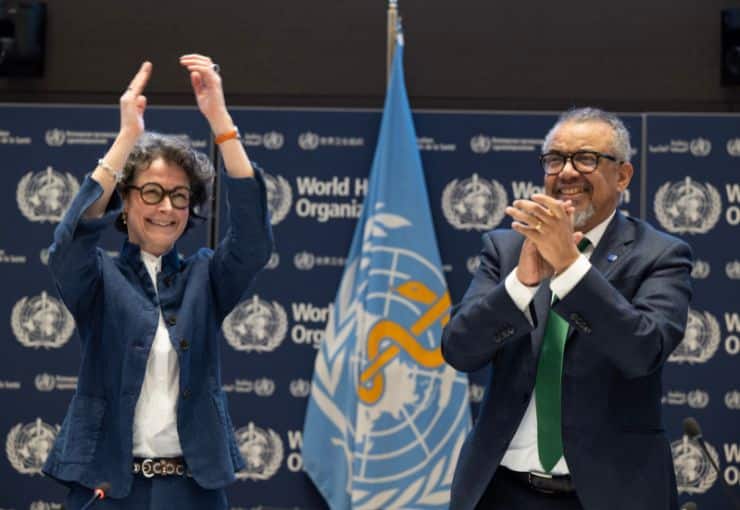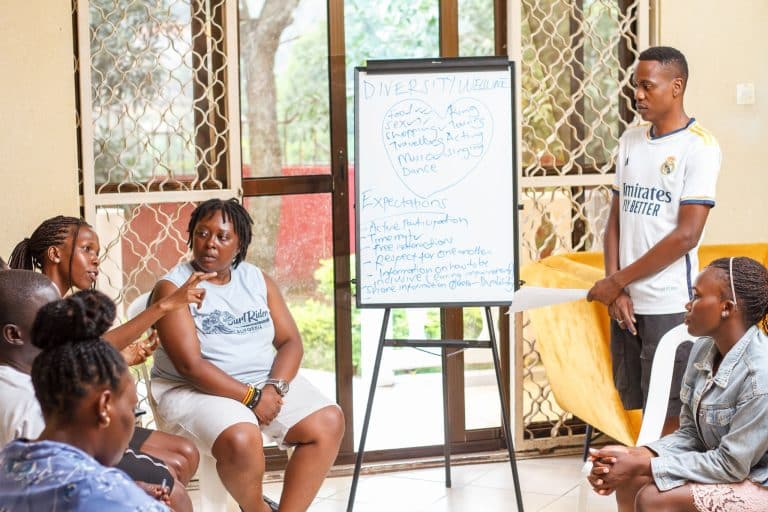The new policy paper of Minister Schreinemacher of Foreign Trade and Development Cooperation, “Doen waar Nederland goed in is” (“Doing what the Netherlands is good at”), is very much focused on Dutch business interests and seems to have insufficient attention for realising access to health care for poorer population groups. The Minister indicates that she wants to invest more in public-private collaborations in low- and middle-income countries, also in healthcare. As a result, there is a great risk that healthcare will become more commercial and therefore unaffordable for people with fewer financial resources. To provide good healthcare, the Minister should, instead, contribute to strengthening the capacity and financial resources in the public sector.
It is the first time that the policy paper of this ministry pays attention to investing in global health and health systems strengthening. Of course, we warmly welcome this. However, we are concerned about risky blind spots in the ideas about the investments.
Strong focus on public-private collaboration
Almost on every page of the policy document the Minister advocates more public-private collaborations, in which local governments and (Dutch) companies realise projects with the support of the Dutch government. This plea is also found in the section on global health. What remains unmentioned however, is that it requires considerable government capacity (management, monitoring, regulation) to shape public-private collaboration in the health sector in such a way that the services provided by commercial parties are good, affordable and available to everybody. This government capacity is often lacking in low and lower-middle income countries. Thus, there is a risk that the involvement of commercial parties causes priorities to shift from the provision of good care to, for example, the introduction of technology that (Dutch) companies are keen to sell.
In connection to public-private collaboration, the Minister also advocates innovative financing. This involves using public money as leverage to attract private investment, for instance through an agency like Invest International. Existing insights on this subject are ignored in the document, although many are available. Experience shows, for instance, that private, return-seeking capital is difficult to attract for healthcare for low-income groups, because this market is simply not sufficiently lucrative. And when it is, it often draws in more rather than less public money. Just last year, a large public-private hospital in Lesotho proved unaffordable for the government. The contract had to be cancelled.
Safeguarding public interest
“Doing what the Netherlands is good at” should not mean trying to put a stamp on healthcare in low- and middle-income countries from a commercial point of view. We are not the only ones who think so. Civil society organisations and health professionals in Africa explicitly mentioned it during our study on the Dutch Aid and Trade Agenda in the previous cabinet term. They expressed concerns about the lack of evidence that public-private partnerships (PPPs) and collaborations benefit healthcare that is accessible to all.
There is no doubt among experts from the World Health Organization, the World Bank and the academic world: the financing of healthcare must come primarily from public funds. Only then can governments (further) build a health system that is accessible to all people, regardless of how deep their pockets are. The minister acknowledges that many governments are struggling with a shortage of public funds for essential services such as healthcare. But the innovative public-private financing solutions she puts forward, show she does not seem to realise how risky they are.
Reflections of two Kenyan health experts
We asked two Kenyans to share their reflections on the main messages in the health paragraph of the new Dutch Foreign Trade and Development Cooperation policy and the current plans of Invest International in the healthcare sector. Dr. John Kitui – medical doctor and Director of Oxfam Kenya – warned for the problems associated with strengthening private health service delivery and leveraging private finance in healthcare. He explained that the logic of ‘markets’ is opposed to that of universal healthcare. Kitui: “Markets revolve around profit-maximising, and universal healthcare revolves around essential services being affordable and free at point of service-provision, in which public finance is pivotal. Private investment leads to unreasonable medical cost inflations and overpricing extras such as hotel services that make healthcare unaffordable. We want to raise awareness on this. There have been issues in Kenya where strengthening of private healthcare services went to the detriment of public service delivery and inflated the costs”.
Linda Oduor-Noah draws from her former experience in the human rights sector and her more recent experience as part of Oxfam International’s health team. She comments: “PPPs in healthcare are often attempted in different localities in Kenya, but without much transparency and accountability. Local communities and civil society need to be heard and consulted at every stage. That being said, extreme caution should be exercised before supporting any PPP for health provision, given their problematic track record on equity and financial sustainability, for example in Lesotho.” She adds that in Kenya it is often challenging to access data or information on these arrangements and that resorting to use of the Access to Information Act is time-consuming and complex. “The Dutch government should facilitate the disclosure of meaningful information about all health projects that they co-fund with Dutch government funds and make such information available to the public.” Kitui calls for true oversight, based on honest and transparent data: “We need the right type of evaluations, where healthcare PPPs are compared with the option of regular public procurement. PPPs need to be audited independently at process level, and at impact to universal healthcare levels, as this would enable access to insight on the value for the investments that were made.”
Focus on public health systems that are accessible to everybody
So, what to do? It is true that public health services in many low- and middle-income countries often fall short, in terms of quality and availability. But the answer does not lie in attracting private commercial funding or services. This would make healthcare too expensive for those with the lowest incomes. Donors should give priority to strengthening the public health system, a frequently heard call by organisations in Africa. The Netherlands would do better by investing in more and better coordinated multilateral cooperation to strengthen public health systems that are accessible to everybody. Then we would not only be doing what the Netherlands is good at, but also do what is right.
On September 28th 2022, a meeting about the policy document on Foreign Trade and Development Cooperation will take place in the Dutch Parliament. We will provide critical questions to Members of Parliament in the run up to this meeting.




